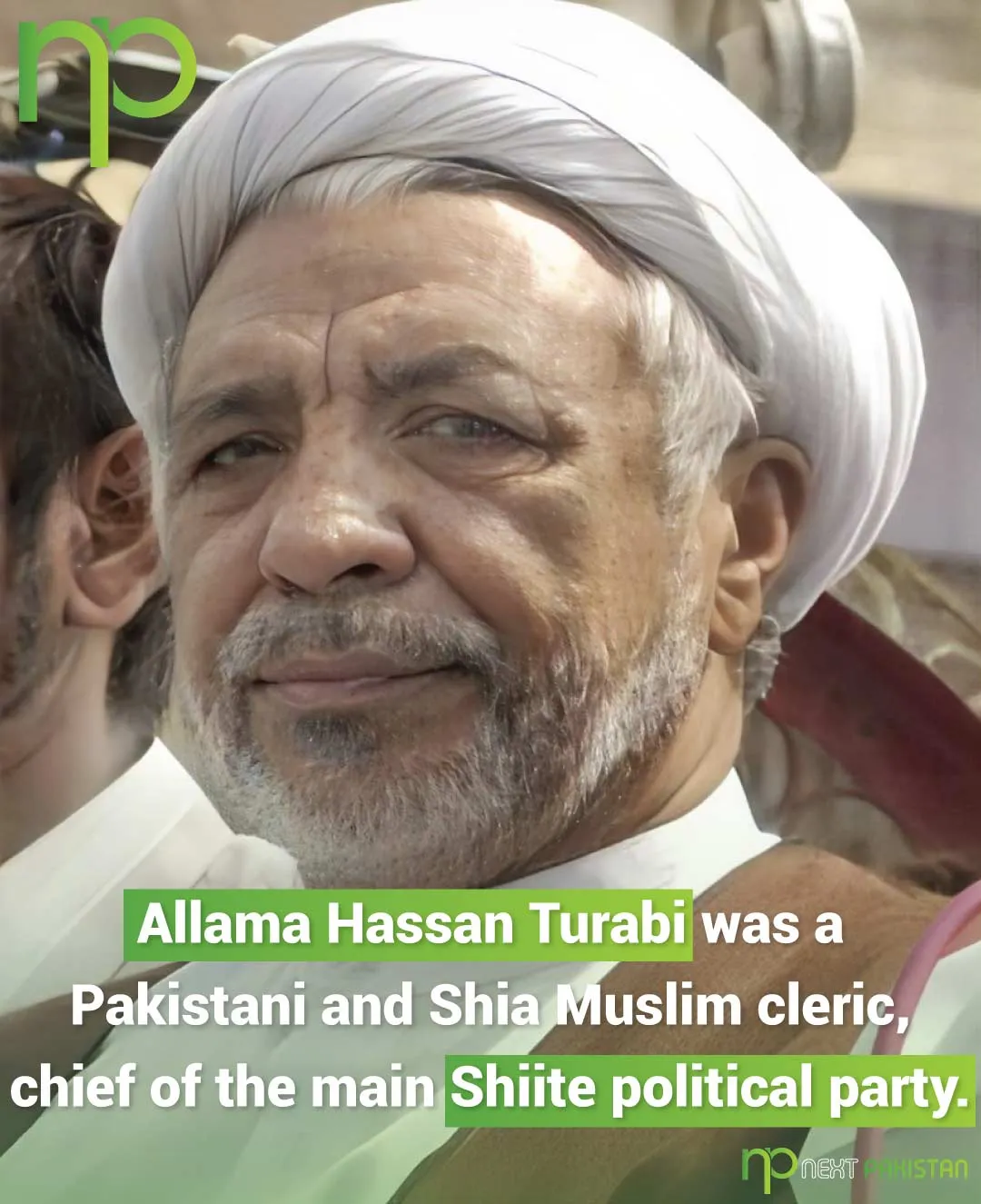
- February 22, 2024
- ubaidah khan
- 0
A Shia Muslim Cleric's Struggle for Unity
Introduction:
Allama Hassan Turabi, a prominent Pakistani Shia Muslim cleric, dedicated his life to religious education, political activism, and the pursuit of Muslim unity. Born in 1953 in the Shigar district of Baltistan, he played a significant role in the Tehrik-e-Jafaria Pakistan party and was a key figure in the Muttahida Majlis-e-Amal, a united front of Islamic parties in Pakistan.
Educational Journey:
After completing his secondary education, Turabi pursued higher studies in Karachi, obtaining a master’s degree from the University of Karachi. His religious education was completed at Jama Imamia Nazimabad, shaping his path towards becoming a respected Shia scholar.
Early Activism:
In 1976, Turabi became the Khateeb of a Shia Jamia Mosque in Mehmoodabad, Karachi, marking the beginning of his active involvement in religious and political affairs. He joined Tehrik-e-Nifaz-e-Fiqh-e-Jafaria in the early ’80s and rose to the position of divisional president by 1989.
Formation of Tehrik-e-Jafaria Pakistan:
Under Turabi’s leadership, Tehrik-e-Nifaz-e-Fiqh-e-Jafaria transformed into Tehrik-e-Jafaria Pakistan. However, the organization faced a ban in 1999 under the Musharraf Government, leading to the formation of Tehrik-e-Islami and eventually the Shia Ulema Council.
Advocacy for Muslim Unity:
Throughout his career, Turabi tirelessly worked towards uniting Muslims of different schools of thought, emphasizing the importance of solidarity among the diverse Muslim communities in Pakistan.
Championing Wilayat-e-Faqeeh:
Turabi became a preacher and follower of the “Guardianship of the Islamic Jurists” doctrine, advocating the thoughts of Imam Khomeini and Ali Khamenei. This Twelver doctrine centers around the concept of Islamic leadership.
Challenges and Attacks:
Karachi’s sectarian violence between Sunni and Shia Muslims posed constant challenges for Turabi. He believed he was targeted by U.S. agents, holding them and Israel responsible for inciting sectarian violence. Turabi survived multiple attacks, with the last unsuccessful attempt occurring on April 6, 2006.
Tragic Assassination:
On July 14, 2006, during a rally protesting Israel’s role in the Israel-Lebanon conflict, Turabi fell victim to a suicide bombing. A 16-year-old Bangladeshi bomber, Abdul Karim, disguised as a beggar, attacked Turabi at his residence in Abbas Town, Karachi. The tragic incident claimed Turabi’s life, along with that of his ten-year-old nephew and a guard, while three policemen were wounded.
Conclusion:
Allama Hassan Turabi’s life was marked by his unwavering commitment to his faith, political activism, and the pursuit of Muslim unity. His tragic assassination remains a somber chapter in the history of sectarian tensions in Pakistan, reflecting the challenges faced by those advocating for harmony among diverse religious communities.